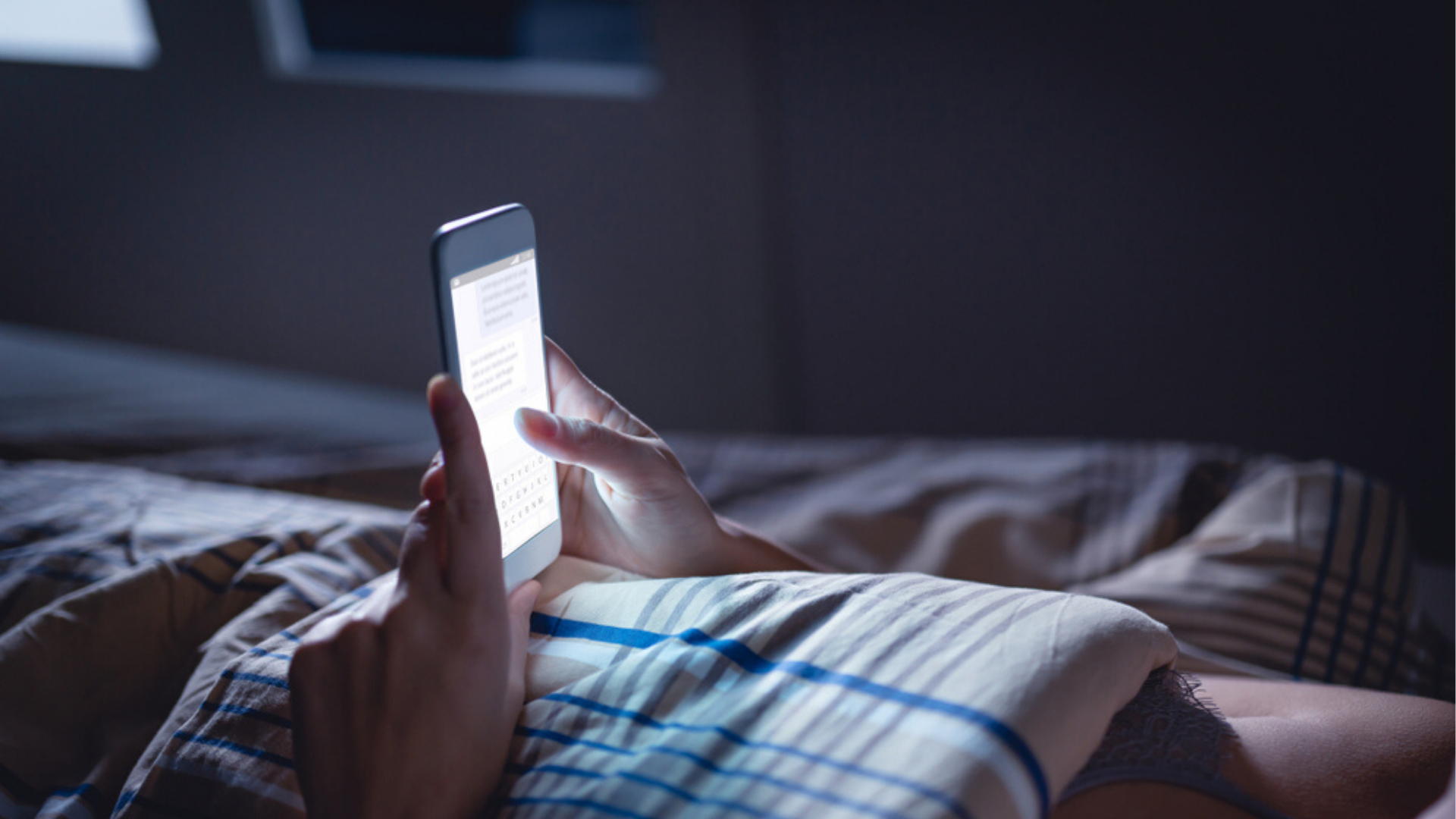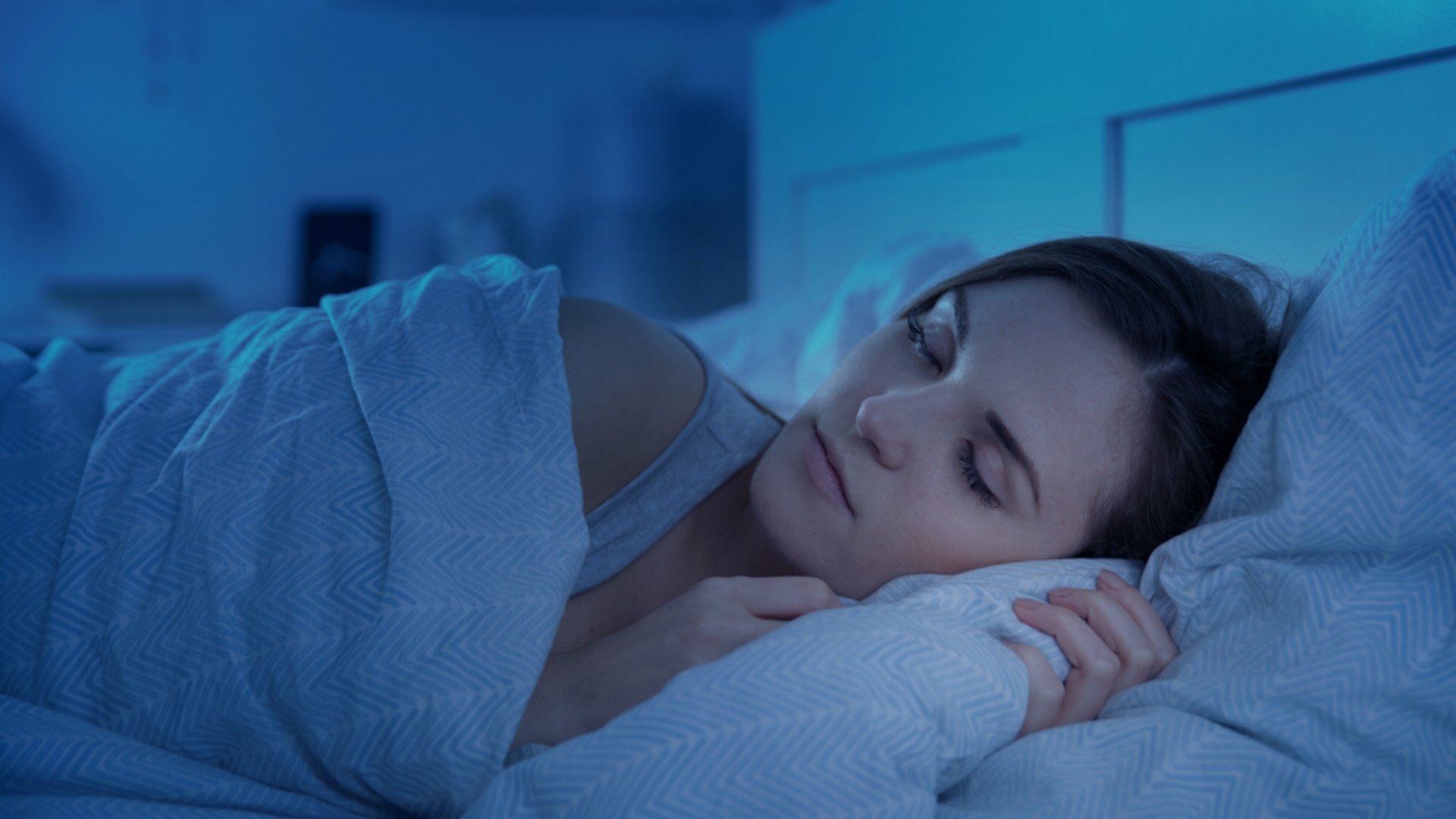The Importance of Minimizing Screen Time Before Sleeping

You’ve been putting in all the hard work to set yourself up for a successful Challenge by training, stretching and getting quality nutrition. However, there’s one thing that’s absolutely critical for both recovery and overall health—sleep!
As noted by the Center of Disease Control and Prevention (CDC), adults require at least 7 hours or more of sleep per night for optimal health and wellbeing. However, thirty percent of adults do not get enough sleep. This is largely due to the digital era in which we live, as we are spending more and more time scrolling through social media on our phones, watching TV, and working on our laptops. The current lack of separation between our work and home lives has made it even easier to fall into the trap of screen scrolling before bedtime.
The research is clear—there are numerous studies that show the negative impacts of using digital devices within an hour of bedtime on both our sleep cycle and overall quality of sleep. This article outlines not only just how important quality sleep is during the F45 Challenge, but also some tips on how you can start to set some boundaries and cut the screen-scrolling habit.
How does screen time in the evening impair our sleep?
According to research, reduced evening sleepiness is a result of blue light emissions. Digital devices, including mobile smartphones and laptop computers, emit short-wavelength artificial blue light, which can increase alertness and make falling asleep difficult.
Research has found that blue light interferes with the production of melatonin, the sleep-inducing hormone. Since melatonin helps to regulate additional hormones involved in our circadian rhythm (internal clock), when suppressed, it is much harder to both fall asleep and achieve quality sleep. REM (rapid eye movement) sleep is the stage of sleep most critical for recovery, restoration of the mind, creativity, and problem-solving skills. The use of devices in the evening has shown to not only delay the onset of REM sleep, but reduce the total amount of it. This can impact alertness the next morning, making it challenging to concentrate.

The importance of quality sleep during the Challenge
Sleep is a vital indicator of our overall health and can largely impact our ability to lose fat. When we continually use blue light-emitting devices in the evening, it can become extremely difficult to achieve quality sleep on a regular basis and may even lead to sleep deprivation.
Unfortunately, this creates a cascade of hormonal events that can negatively affect our hunger and appetite-regulating hormones. In the case of sleep deprivation, the production of leptin (appetite regulator) is reduced, and insulin (blood sugar regulator) becomes less sensitive. This can lead to fat storage in all the wrong places, including the liver.
Adequate sleep is also essential for recovery, as it allows our body to repair itself in order to promote training adaptations. It also largely impacts our motivation and work ethic, which are critical components in ensuring we are able to finish strong in this final phase of the F45 Challenge. In order to benefit training and promote efficient recovery, we should aim for at least 7 hours of quality sleep each night with no digital device use within an hour of bedtime.

How to break the habit of nighttime screen scrolling
With the added time at home, it has become even more difficult to set boundaries and hold ourselves accountable to putting our phone away and letting our brain rest. Our metabolism, mood, appetite, and even our ability to reduce inflammation in our body, depend on quality sleep. If you’re an avid nighttime screen scroller, you’re not alone. It all stems from our addictive ‘feel-good’ hormone dopamine, which is produced when we scroll through social media.
To break the habit, we need to set screen scrolling boundaries and create a nighttime routine that allows us to feel relaxed, calm, and decompress from the day. Often times, stressors from the day or anxious thoughts can make it tough for us to calm our minds. Reading a book (not on a digital device) has shown to be an effective way to relax our minds and promote quality sleep. If you are planning to use a computer in the early evening (2-3 hours before bed), consider checking out a pair of blue light glasses, which have been shown to help restore melatonin production. We’ve also outlined a few strategies below that may make it easier to break the habit:
Tips for minimizing screen time before bed
- Pick a bedtime each night and stick to it
- 3-minute meditation before bedtime
- Journaling or goal-setting for the week
- Set a reminder on your phone 1 hour before bed to power down or put away your device
- Read a book or a magazine instead of a computer screen or phone
- Stretch in the evening before going to sleep
References
Green et al. Evening light exposure to computer screens disrupts human sleep, biological rhythms, and attention abilities. Chronobiology International. Vol. 34, May 26, 2017, p. 855. doi: 10.1080/07420528.2017.1324878.
Lissak, G. (2018). Adverse physiological and psychological effects of screen time on children and adolescents: Literature review and case study. Environmental research, 164, 149-157.
Watson NF, Badr MS, Belenky G, et al.; Consensus Conference Panel. Joint consensus statement of the American Academy of Sleep Medicine and Sleep Research Society on the recommended amount of sleep for a healthy adult: methodology and discussion. Sleep. 2015;38:1161–1183.
